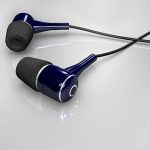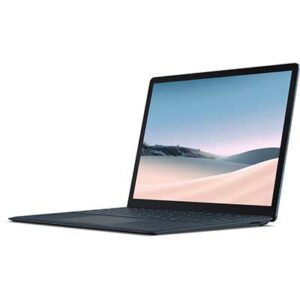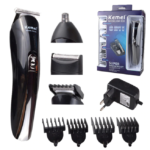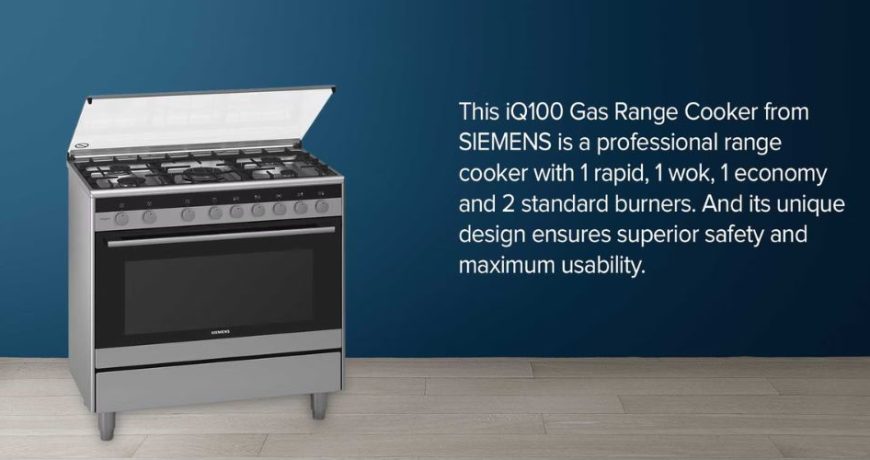Gas Cooker: A Comprehensive Guide To Cooking Efficiency Leave a comment
Are you weary of spending hours in the kitchen, fighting with an inefficient stove that fails to suit your culinary needs? Look no further than a gas cooker, a flexible and efficient kitchen equipment intended to make your cooking experience a breeze.
In this detailed tutorial, we will discuss the features, advantages, and recommendations for operating a gas burner properly.
Whether you’re a seasoned chef or a newcomer in the culinary industry, this article will supply you with all the knowledge you need to know about gas cookers.
What Is A Gas Cooker?
A gas cooker, often known as a gas stove or gas range, is a kitchen equipment that employs natural gas or propane as a fuel source for cooking.
It comprises one or more burners on the cooktop and an oven for baking or roasting. Gas cookers give rapid heat and excellent temperature control, making them a favoured option for many cooking lovers.
Types Of Gas Cooker
Gas cookers come in many forms to suit different kitchen settings and cooking tastes. The common kinds include:
- Freestanding Gas Cookers
These cookers offer a solitary design and are excellent for kitchens with adequate space.
- Built-In Gas Cookers
Designed to be incorporated into kitchen cabinets or counters, built-in gas cookers give a smooth and streamlined aesthetic.
Advantages Of Gas Cooker
- Instant Heat
One of the primary benefits of gas cooker is their ability to offer rapid heat. With the turn of a knob, the flame ignites instantaneously, enabling you to start cooking right away.
This capability is very handy when you need to boil water fast or sear meat at high temperatures.
- Precise Temperature Control
Gas cookers provide great temperature control, providing you the ability to modify the flame strength to suit your cooking needs.
Whether you require a leisurely simmer or a quick boil, gas cookers allow for exact temperature changes, ensuring your food is cooked to perfection.
- Cost-Effective
Compared to electric cookers, gas cooker is more cost-effective in the long term. Natural gas and propane tend to be cheaper energy sources than electricity, resulting in reduced utility costs.
Additionally, gas stoves enable effective heat distribution, decreasing cooking times and conserving energy.
Choosing The Right Gas Cooker
- Size And Capacity
When buying a gas burner, consider the size and capacity that best meets your cooking requirements.
Assess the available space in your kitchen and pick a cooker with dimensions that suit nicely.
Determine the number of burners and the size of the oven depending on the amount of food you regularly cook.
- Number Of Burners
Gas cooker come with varied numbers of burners, commonly ranging from two to six. The number of burners you pick depends on your cooking needs and the available area on the stove.
Consider if you need extra features like a griddle or a wok burner for specialty cooking.
- Safety Features
Prioritise safety while purchasing a gas stove. Look for features such as flame failure devices that instantly turn off the gas supply if the flame goes out.
Additionally, check for built-in gas leak alarms and kid lock mechanisms to provide a secure cooking environment.
Installation And Maintenance Gas Cooker
- Proper Ventilation
Proper ventilation is vital when installing a gas cooker. Ensure your kitchen has adequate ventilation to allow for the safe discharge of gas byproducts.
Install an extractor hood or a range hood over the cooker to reduce smells, smoke, and excess heat.
- Gas Supply Connection
It’s vital to engage a skilled gas engineer to connect your gas stove to the gas supply. Improper installation might lead to gas leaks and safety issues. Make sure the gas connection is secure and check for any leaks using a soap and water solution.
- Cleaning And Maintenance Tips
Regular cleaning and maintenance of your gas burner are vital for maximum performance and lifetime. Clean the stove and burners periodically, eliminating any food particles or spills.
Refer to the manufacturer’s instructions for precise cleaning suggestions. Additionally, schedule expert maintenance inspections to verify all components are in excellent operating condition.
Using A Gas Cooker Efficiently
- Igniting The Burners
To light the burners, turn the knob to the chosen burner and push it in while simultaneously pushing the ignition switch. This operation will release gas and generate a spark to start the flame. Once the burner is ignited, adjust the flame to the appropriate intensity.
- Adjusting The Flame
Gas stoves enable fine flame control using the burner knobs. Turn the knob clockwise to raise the flame intensity and counterclockwise to lessen it. Experiment with various flame levels to discover the ideal setting for each cooking style.
- Cookware Compatibility
Gas cookers perform well with a number of cookware materials, including stainless steel, cast iron, and copper.
Ensure the cookware has a level and solid bottom for even heat dispersion. Avoid using cookware with handles made of plastic or other materials that may melt or get damaged by excessive heat.
Safety Precautions
- Gas Leak Detection
Gas leaks may pose a considerable concern in the kitchen. To identify a gas leak, acquaint yourself with the unique odour of natural gas or propane.
If you sense a strong smell of gas, open the windows, stop turning on any electrical equipment, and immediately notify your gas provider or a competent specialist.
- Fire Safety Tips
Always emphasise fire safety while using a gas stove. Keep flammable things away from the stove, such as kitchen towels, curtains, and paper goods.
Install a fire extinguisher in your kitchen and ensure it is conveniently accessible in case of an emergency.
Troubleshooting Common Issues
- Burner Ignition Problems
whether you notice issues lighting a burner, check whether the gas supply is connected correctly and if there is gas in the cylinder or pipeline.
Clean the burner ports to eliminate any obstructions that may be restricting the gas flow. If the situation continues, seek a skilled technician for help.
- Uneven Heat Distribution
Uneven heat distribution on the cooktop may occur from a multitude of circumstances. Ensure that your cookware is correctly positioned on the burner to allow for uniform heat transmission.
Clean any food residue or grease that may be impacting the flame’s dispersion. If the problem continues, it is suggested to see an expert to examine the gas stove.
Tips For Enhancing Gas Cooker Performance
- Using Simmering Rings
Simmering rings are attachments meant to spread heat evenly and avoid scorching while cooking delicate meals at low temperatures.
Place a simmering ring over the burner flame and set the cooking pot on top to enjoy mild and constant heat.
- Using Pressure Cookers
Gas cookers are compatible with pressure cookers, which may greatly cut cooking times. Pressure cookers produce a sealed atmosphere that retains steam, boosting the boiling point and speeding up the cooking process.
This function is especially beneficial for making tender meats and delicious stews in a fraction of the time.
- Utilising Multi Level Cooking
Make the most of your gas burner by adopting multilayer cooking. If your cooker has numerous oven racks, you can cook various dishes concurrently.
Adjust the oven temperature and cooking times appropriately to guarantee equal cooking throughout.
Conclusion
Gas cookers provide significant benefits in terms of fast heat, accurate temperature control, and cost-effectiveness.
By choosing the correct gas cooker, following installation and maintenance requirements, and operating it effectively, you may increase your cooking experience and prepare tasty meals simply.
Remember to emphasise safety, resolve common faults, and investigate extra suggestions to enhance the operation of your gas stove.
FAQs
Are gas burners safe to use?
Gas stoves are typically safe to use when installed and maintained appropriately. Follow safety rules, maintain sufficient ventilation, and repair any gas leaks quickly.
Can I convert my electric stove to a gas burner?
Converting an electric stove to a gas cooker needs expert help. Consult a trained specialist to analyse the feasibility and safety of such a modification.
How frequently should I clean my gas cooker?
Regular cleaning is necessary to preserve the efficiency of your gas stove. Clean the stove and burners after each use and plan periodic thorough cleaning to eliminate persistent stains or buildup.
Can I use a gas burner during a power outage?
Yes, gas cookers may still be used during a power outage since they do not depend on electricity to work. However, maintain appropriate ventilation and take essential safety measures.
What is the lifetime of a gas cooker?
The lifetime of a gas cooker might vary based on its quality, use, and maintenance. With adequate maintenance, a well-maintained gas stove may survive for 10 to 15 years or more.
Visit Our Facebook Page:












